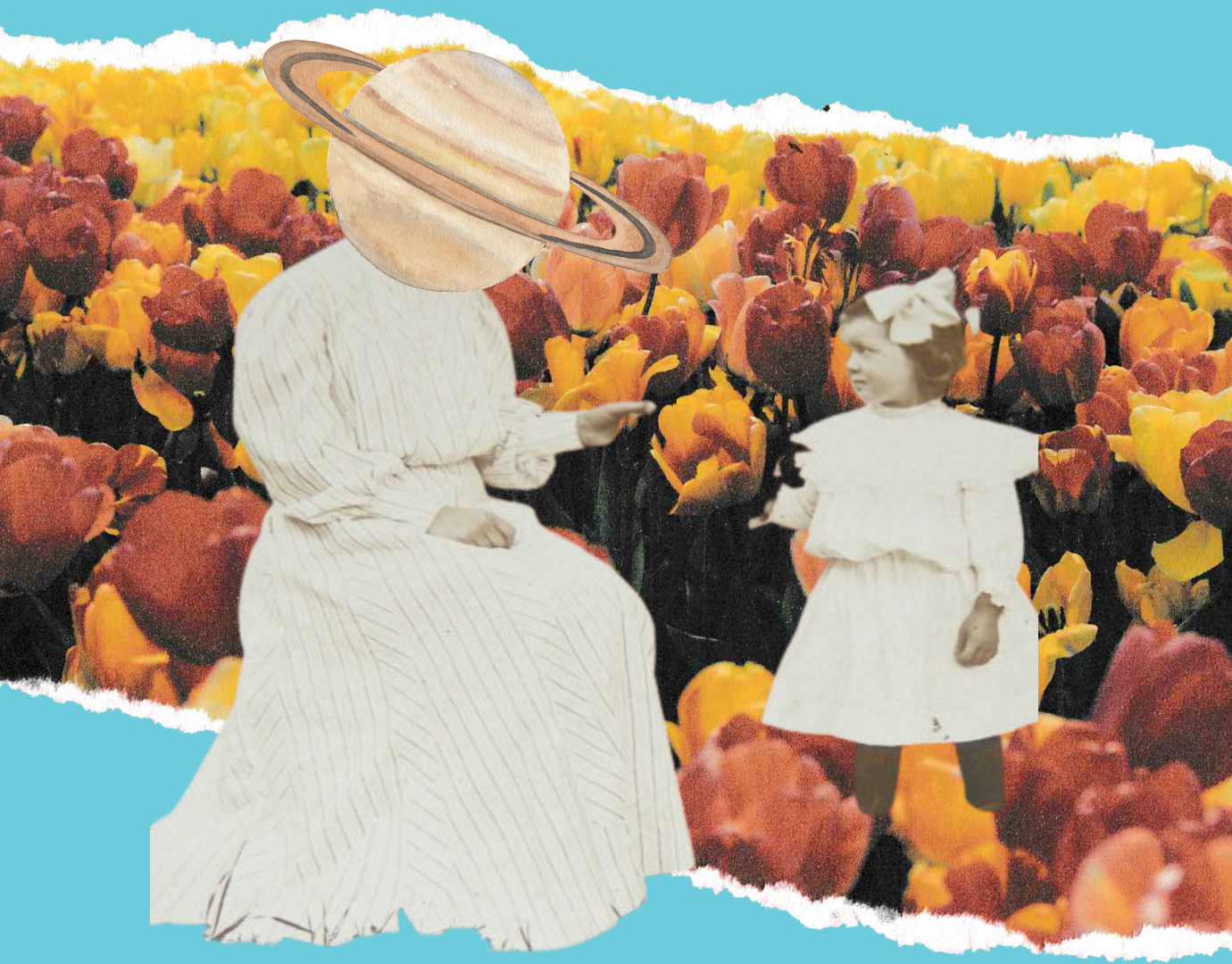DEPENDENCY AND THE MOON -SATURN ASPECT
What is the difference between emotional dependence and independence? The path to maturity is articulated in three phases: the first is the one called dependency, and it is mandatory for everyone. In the early years of life every child is totally dependent on adults for his emotional and material needs. Gradually, the child begins to acquire his own independence: he learns to eat and wash himself, until he reaches the point in which will move on his own and start his own independent path. Not everyone, however, succeeds in achieving emotional independence: many adults remain totally dependent on others for approval, judgment and they put themselves in somebody else's hands, their satisfaction of their own needs and values.
A person can be truly independent when he no longer has any kind of dependence on people around him, either physically or psychologically. It can live a happy and satisfying life even on his/her own, as claimed in the archetype of the Capricorn.
Emotional dependence refers to "you" ("you have to take care of me," "you make me angry," "you had to deal with this"). Independence refers to "I" ("I care for myself," "I am responsible for what happens to me and my reactions to external stress," "I had to deal with this").
These conflicts could be indicated by the planets that represent the concept of autonomy and intimacy: Moon and Venus having dynamic aspects with Mars and Uranus and/or Moon/Venus and Saturn. In this case, we will find people that will struggle with an inner principle of fusion and detachment at the same time.
Emotional independence leads to overcoming the negative opinions that others may have on our account. When we overreach others' opinions, or distort their behaviours in order to gain gratification or consents, we are facing a clear indicator of emotional dependency.
This attitude is probably connected to a dependent family history: we get back to familiar dynamics we lived with as kids. The difficulties we faced with a parent, especially in a Moon - Saturn dynamic, will be faced again with a partner. With a Moon - Saturn dynamic aspect we had to go through an experience of lack of emotional support. In our intimate relationships, this could lead to a defensive way to act in order to protect our vulnerability and to an unconscious fear of not being accepted as we are.
We also have unrealistic expectations. In relationships, we enter them expecting certain things. No one looks at someone else and says, "If I will be with you, I'll be so utterly miserable that I'll want to quit everything. Do you love me?" No, we expect things. We expect our mate to be faithful to us. We expect our spouse to love us. We expect our friends to back us up. We expect things from the government, from our boss, from our coworkers, and from life itself. We are full of expectations. Expectations are natural and are related to feeding our demons and we expect the significant one would behave in a certain culturally defined way.
This brings to another point: why is it that the emotional woman and rational man are still foundational to female and male identity? At this point in the twenty-first century, we espouse a belief in gender equity at the same time that we believe in fundamental differences between women and men. Equity doesn’t mean equality in the sense of “sameness.” But the blanket categorization of male/female, men/women within a polarity of rational/emotional—which implicitly means “irrational”—is the problem. As we work to create a culture in which women and men are both responsible for caring and creating, aligning with either rationality or emotionality as core to one’s sense of maleness or femaleness is both misguided and self-defeating. If we keep on giving to the man of the relationship the challenge of being the rational one and to the woman the emotional one, the woman would keep on carrying the feeling of dependency suggested by our cultural model and the man would dissociate himself from the concept of vulnerability.
This would bring to a lack of resolution of the problem in which the male would be challenged by the impetuous emotions of the woman, and the woman would feel refused in her research for confirmations from the man.
In this case, the threatening emotions that we feel within ourselves will always be projected outside that won't bring any resolution of these dynamics, and, furthermore, it will lead to a painful relationship.
If we have a Moon - Saturn aspect, one partner will personify the Saturnian role (rational), and the other one the Moon/Venus (emotional) one with frustrating results on an emotional and personal level.
This led to the archetype of Capricorn: the concept of independence. From a psychological basis Capricorn connects with the following dynamics: self-determination, accepting responsibility for your own actions, emotional maturation.
Capricorn also connects to the psychology of depression. There is a good reason for this – the nature of depression is reflection – a dynamic necessary to consciousness, as in reflection and depression we need to discover the operative dynamic in our life that needs to change. Saturn and Capricorn correspond to the way we structure our consciousness, just as Saturn is the skeletal structure of the body, so is it of the consciousness. In this sense, depression then reflection leads to the capacity to initiate change.
So it is important to find an inner balance in order to understand the evolutionary principle of a Moon-Saturn aspect. This does not mean avowing compliments, but not relating to them as a vital process in order to feel good. The emotionally independent person remains in balance whether he receives a compliment or does not receive it, he/she is aware of his/her value regardless of the judgment of others. Emotional independence means that you are autonomous in thinking and in creating your own opinions, and that you are intimately satisfied with the outcome of your actions, even if other people approve it or not.
Obviously this does not mean avoiding to make relationships with other people and break any relationship with the outside, and that is the reason why we need to try to make a leap of quality: from independence to interdependence.
Interdependence is deciding to synergize with someone else and combine our characteristics with those of others in order to achieve something that we alone couldn't ever have done.
It resonates with the polarity of the 1st and 7th house: between the desire of doing what we want and the experience of sharing with other people suggested by the 7th house.
From "you" we passed to "I": now, the personal pronoun of interdependence becomes "us". We can do it together, together we decide to do the best to do this work that none of us alone could accomplish.
Interdependence is the life philosophy of team and organization. To be interdependent means to recognize that we enjoy being loved and gratified, means to be aware of the value of our ideas, but also of the others' ones; means to feel free to share with others without feeling threatened, opening our heart and our potential to people who have been chosen as fellow companions.
This is linked to the principles of the 7th house and the 10th house, and we find some dynamic aspects in this position that could be the feeling that others could be a threat to our development in the society, with a consequent misleading conception of independence seen as a solitary island.
In other words, it would be difficult to create a healthy relationship of interdependence if you don't become emotionally independent. In an interdependent relationship, two individuals choose freely and consciously to be together, because they know that they can together bring about synergy.
You know you can do it alone, but you can decide that together is much better.
There should never be a single leader in one pair, but two who alternate with driving according to the circumstances and needs, who support and stimulate each other, who give and receive in equal measure. If you manage to deal with this inner/interpersonal struggle, you would definitely express your Moon-Saturn energy at your best.



